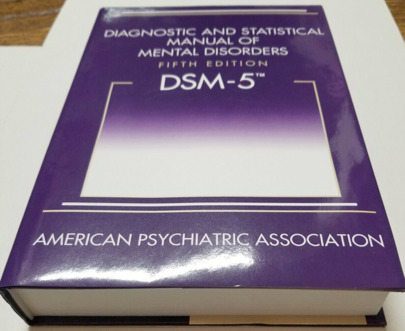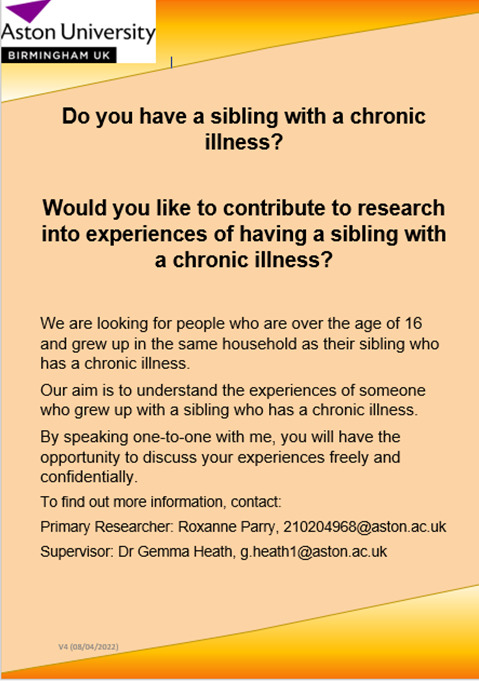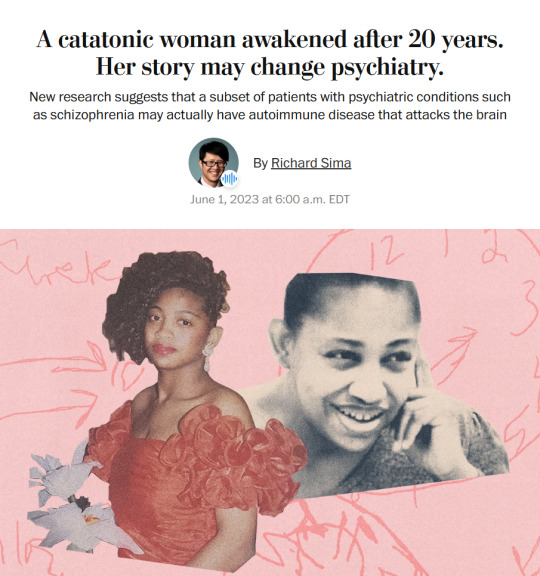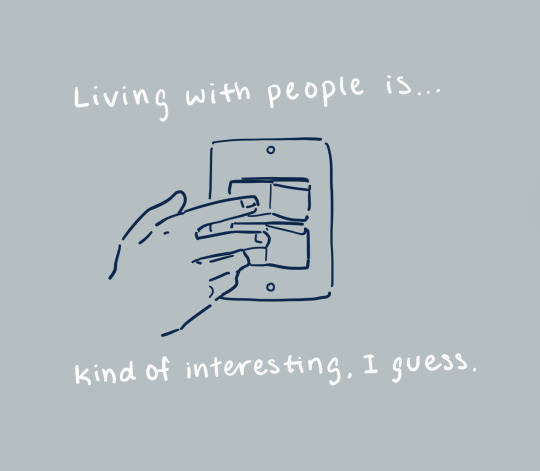#psychological research
Note
Genuine question, what’s wrong with the DSM?
[OP refers to the Diagnostic and Statistical Manual of Mental Disorders, which I mentioned being unpopular among mental health professionals.] Disclaimer: I'm not a psychiatrist, I'm not a therapist, and I'm not trained in counseling. I'm a social psychology researcher. If a therapist contradicts me, listen to the therapist.
The problem with the DSM as I understand it: a lot of counselors/ psychiatrists/ etc. want to move away from a category- and source-based diagnostic system, toward a symptom-based treatment system. For example, think about Pepto Bismol: you feel nauseous, you chew pink tablets, it ends your nausea. It doesn't matter if your nausea is indigestion or seasickness or lactose intolerance. You match a treatment (pink bismuth) to a symptom (nausea) and don't waste time or money on diagnosis unless that treatment proves ineffective.
A large percent of counselors etc. would like to take the same approach to mental health. So we'd be researching treatments for nightmares (neurofeedback? MDMA?) in the long-term, and giving clients treatments for nightmares (meditation! Ambien!) in the short-term. All without worrying too much about whether the nightmares are caused by General Anxiety Disorder or a phobia or Seasonal Affective Disorder. There are many strengths to that approach.
Only, see, there's this big purple dinosaur holding us back.

[Image ID: Hardcover copy of the Diagnostic and Statistical Manual of Mental Disorders, Fifth Edition, DSM-5, American Psychiatric Association; the title is white text on a purple background.]
So if everyone who uses the DSM also hates the DSM, why does it still exist and why do we keep buying it every time a $100 text revision gets published? Two reasons, in order of importance:
Insurance
Communication
Insurance is, I kid you not, the DSM's #1 reason for existence. American insurance companies won't cover treatment unless it's for a diagnosed illness, and so therapists put diagnosed illnesses on what they'd often be more comfortable describing as "bro, this dude is hella distressed and I'm trying to help undistress him." Note the word American on the cover; other countries have other manuals, and no other country's counselors are as chained to theirs as we are to ours. This means that the DSM helps — yay, affordable therapy! It means the DSM hurts — sets of symptoms get grouped artificially, spectra get split into categories, and diagnosis happens way too early in the therapeutic process.
Another comparison to unmental health: I don't have carpal tunnel syndrome, but my insurance provider thinks I do. I only announce that I don't because I haven't told you who I am or where I live. (If the insurance companies find us... Well, we just won't let them find us. The thing you should know is everyone is getting screwed by health insurance. Yeah, even you.) I have wrist pain and tingling. It has the wrong antecedents for carpal tunnel, and it has weird manifestations — pressure on the base of my thumb causes pain in my pinky — but my OT wrote down "Carpal Tunnel" on the forms because the alternative was a $500+ round of diagnostic scans. No one cares whether my median nerve is inflamed or not; occupational therapy still looks like "try this stretch, that stretch, this brace, that brace, and these activity changes; keep whichever combination makes the pain and tingling go away."
This kind of thing also happens in mental health all the time. Many therapists don't care — and neither should you — if your serotonin levels are low; if you're miserable and an SSRI prevents the misery, take the dang SSRI. If your mother was harshly critical and now you feel panic at any hint of criticism, it doesn't matter whether that better fits C-PTSD or NPD; it matters whether you cope with soothing self-talk or if you cope with alcohol. Put something from the DSM on the forms, and focus on finding which stretches (breathing exercises) make the tingling (panic) go away.
Communication is the biggest strength of the DSM. It means that clients can benefit from labels ("I'm not lazy, I'm ADHD") and consistent standards of treatment can be applied across different clients in different states. The DSM has huge lists of things like "if your client shows memory problems, be sure to check for alcohol abuse" or "if they have self-harm, make sure it's non-suicidal before you do anything else" that are tremendously helpful. It can help therapists who encounter a set of behaviors they've never seen before to go "client is rigid, rule-bound, and lacks insight... huh, looks like I'd better refer them to an OCPD specialist." (It's also the source of a lot of toxic misinformation on social media when symptom lists get taken out of context without that all-important differential diagnosis information, but I digress.)
However, diagnosis should never be the beginning point for therapy — it's impossible to know your client's mind without first building trust and transference — but reliance on the DSM for insurance often forces it to be. Diagnosis should never be the end point for therapy — knowing your perceptions don't match others' because of Bipolar I won't stop you hearing the dang hallucinations — but home use of the DSM often acts that way. Categorical diagnosis is limiting if your therapist is primarily interested in how depressed you are but the Beck Depression Inventory uses an absolute cutoff point for "depressed" or "non-depressed." Categorical diagnosis is useless if over 50% of people diagnosed with a depression are later diagnosed with an anxiety disorder, and vice versa. So it's an imperfect book that does a lot of things well and a few things badly, and many of its heaviest users would argue that it shouldn't exist at all.
For further reading, I recommend The Body Keeps the Score by Bessel van der Kolk. I don't agree with all the axes he grinds or all the ways he grinds them, but he's got decades of psychiatry experience and is (I hope) predicting the next paradigm shift in mental health.
For instance, van der Kolk argues that it doesn't matter if at intake your client has long blond hair and is named Linda, only to show up the next time with no hair and the name Gerald, only to come next time with short red hair and the name Taylor. The therapist should only be asking "how does the client feel about these changes?" and "what are these changes doing for the client?" If Linda can't remember what Gerald did, then focus on the terrible memory gaps that alter identities create. If Taylor became Gerald to try and please you, then focus on teaching mindfulness and self-compassion. If this is a happily genderqueer person, then figure out why they're seeking help and don't worry about the appearance changes. If this is someone who thinks in absolutes and regards their personality as constantly changing, then work on teaching them to see the world and themself with moral complexity. It doesn't matter whether Dissociative Identity Disorder exists or not; just ask your client what they need and how you can help, then go from there.
Anyway, the DSM is an imperfect solution to a complex problem, and a lot of mental health practitioners view it as a relic of a more paternalizing era. No one has come up with a really good solution for how to remove and replace it, so for now it's the least-bad option.
#dsm#dsm 5#psychology#psychological research#therapy#counseling#mental health#diagnostic and statistical manual of mental disorders#psychiatry#diagnosis#long post#(almost) nothing to do with animorphs#depression mention#ptsd mention#suicide mention#american politics#to be 100% clear: I *do not know enough* to have an opinion about whether or not Dissociative Identity Disorder exists#i only know that some very expert people have argued for it *and* that some very expert people have argued against it#and that all these very expert people absolutely agree on listening to the client howsoever the client chooses to identify#more research is needed#I reiterate: I AM NOT A THERAPIST AND NONE OF THIS IS MEANT AS MENTAL HEALTH ADVICE
587 notes
·
View notes
Text
Hello! We are conducting some research into the cross section of autism and plurality, as we have noticed that there most definitely is some association but we are as of now unsure of what it is. If you are plural autistic or both then we would much appreciate responses! We would also appreciate responses from people who are from neither of those groups as a sort of control group. Thank you in advance for any responses we receive!
251 notes
·
View notes
Text
9 notes
·
View notes
Photo

Hi everyone. I’m looking to recruit people for my university project. I’m looking at the experiences of sibling of people who had a chronic illness during childhood. Please reach out if interested and please share this as well.
Inclusion criteria:
The participant is over the age of 16, at least one of their siblings has a chronic health condition, lives in the UK.
Exclusion criteria:
The participant is under the age of 16, they do not have a sibling with a chronic health condition, the participant themselves has a chronic health condition, lives outside of the UK or they do not speak or understand English.
#siblings#disability#chronic disease#chronuc illness#asthma#epilepsy#family#psychology#psychological research#interview
20 notes
·
View notes
Text
Sensory Processing Difficulties
Forms of sensory processing sensitivities:
1. Ease of excitation
2. Low sensory threshold
3. Aesthetic sensitivity
💥💥💥💥💥💥💥💥💥💥💥💥💥💥
Self tests
Self test for Ease of Excitation (EOE)
1. Do other people’s moods affect you?
2. Do you tend to be more sensitive to pain?
3. Do you startle easily?
4. Do you get rattled when you have a lot to do in a short time?
5. Are you annoyed when people try to get you to do too many things at once?
6. Do you try hard to avoid making mistakes or forgetting things?
7. Does being very hungry create a strong reaction in you, disrupting your concentration or mood?
8. Do changes in your life shake you up?
9. Do you find it unpleasant to have a lot going on at once?
10. Do you make it a high priority to arrange your life to avoid upsetting or overwhelming situations?
11. When you must compete or be observed while performing a task, do you become so nervous or shaky that you do much worse than you would otherwise?
12. When you were a child, did your parents or teachers seem to see you as sensitive or shy?
Self test for Low Sensory Threshold (LST)
1. Are you particularly sensitive to the effects of caffeine?
2. Are you easily overwhelmed by things like bright lights, strong smells, coarse fabrics or sirens close by?
3. Are you made uncomfortable by loud noises?
4. Do you make a point to avoid violent TV shows and movies?
5. Do you become unpleasantly aroused when a lot is going on around you?
6. Are you bothered by intense stimuli, like loud noises or chaotic scenes?
Self test for Aesthetic Sensitivity (AS)
1. Do you seem to be aware of the subtleties in your environment?
2. Do you have a rich, complex inner life?
3. Are you deeply moved by the arts or music?
4. Are you conscientious?
5. When people are uncomfortable in a physical environment do you tend to know what needs to be done to make it more comfortable (like changing the lighting or the seating)?
6. Do you notice and enjoy delicate or fine scents, tastes, sounds, works of art?
7. Do you find yourself needing to withdraw during busy days, into bed or into a darkened room or any place where you can have some privacy and relief from simulation?
“Sensitivity is not only associated with creativity, but also with spirituality, mystical experiences, and a connection to nature” - Shades of Sensitivity, Scientific American, Scott Barry Kaufman (May 4 2015).
Information gathered from, Grimen, H. L., & Diseth, Å. (2016). Sensory Processing Sensitivity: Factors of the Highly Sensitive Person Scale and Their relationships to Personality and Subjective Health Complaints. Comprehensive Psychology, 5.
#psychology#clinical psychology#sensory processing disorder#sensory processing difficulties#sensitive#highly sensitive person#empath#psychological research#neurodiverse stuff#neurodivergencies#neurodiversity#asd life#autism
5 notes
·
View notes
Text

Story from the Washington Post here, non-paywall version here.
Washington Post stop blocking linksharing and shit challenge.
"The young woman was catatonic, stuck at the nurses’ station — unmoving, unblinking and unknowing of where or who she was.
Her name was April Burrell.
Before she became a patient, April had been an outgoing, straight-A student majoring in accounting at the University of Maryland Eastern Shore. But after a traumatic event when she was 21, April suddenly developed psychosis and became lost in a constant state of visual and auditory hallucinations. The former high school valedictorian could no longer communicate, bathe or take care of herself.
April was diagnosed with a severe form of schizophrenia, an often devastating mental illness that affects approximately 1 percent of the global population and can drastically impair how patients behave and perceive reality.
“She was the first person I ever saw as a patient,” said Sander Markx, director of precision psychiatry at Columbia University, who was still a medical student in 2000 when he first encountered April. “She is, to this day, the sickest patient I’ve ever seen.” ...
It would be nearly two decades before their paths crossed again. But in 2018, another chance encounter led to several medical discoveries...
Markx and his colleagues discovered that although April’s illness was clinically indistinguishable from schizophrenia, she also had lupus, an underlying and treatable autoimmune condition that was attacking her brain.
After months of targeted treatments [for lupus] — and more than two decades trapped in her mind — April woke up.
The awakening of April — and the successful treatment of other people with similar conditions — now stand to transform care for some of psychiatry’s sickest patients, many of whom are languishing in mental institutions.
Researchers working with the New York state mental health-care system have identified about 200 patients with autoimmune diseases, some institutionalized for years, who may be helped by the discovery.
And scientists around the world, including Germany and Britain, are conducting similar research, finding that underlying autoimmune and inflammatory processes may be more common in patients with a variety of psychiatric syndromes than previously believed.
Although the current research probably will help only a small subset of patients, the impact of the work is already beginning to reshape the practice of psychiatry and the way many cases of mental illness are diagnosed and treated.
“These are the forgotten souls,” said Markx. “We’re not just improving the lives of these people, but we’re bringing them back from a place that I didn’t think they could come back from.” ...
Waking up after two decades
The medical team set to work counteracting April’s rampaging immune system and started April on an intensive immunotherapy treatment for neuropsychiatric lupus...
The regimen is grueling, requiring a month-long break between each of the six rounds to allow the immune system to recover. But April started showing signs of improvement almost immediately...
A joyful reunion
“I’ve always wanted my sister to get back to who she was,” Guy Burrell said.
In 2020, April was deemed mentally competent to discharge herself from the psychiatric hospital where she had lived for nearly two decades, and she moved to a rehabilitation center...
Because of visiting restrictions related to covid, the family’s face-to-face reunion with April was delayed until last year. April’s brother, sister-in-law and their kids were finally able to visit her at a rehabilitation center, and the occasion was tearful and joyous.
“When she came in there, you would’ve thought she was a brand-new person,” Guy Burrell said. “She knew all of us, remembered different stuff from back when she was a child.” ...
The family felt as if they’d witnessed a miracle.
“She was hugging me, she was holding my hand,” Guy Burrell said. “You might as well have thrown a parade because we were so happy, because we hadn’t seen her like that in, like, forever.”
“It was like she came home,” Markx said. “We never thought that was possible.”
...After April’s unexpected recovery, the medical team put out an alert to the hospital system to identify any patients with antibody markers for autoimmune disease. A few months later, Anca Askanase, a rheumatologist and director of the Columbia Lupus Center,who had been on April’s treatment team, approached Markx. “I think we found our girl,” she said.
Bringing back Devine
When Devine Cruz was 9, she began to hear voices. At first, the voices fought with one another. But as she grew older, the voices would talk about her, [and over the years, things got worse].
For more than a decade, the young woman moved in and out of hospitals for treatment. Her symptoms included visual and auditory hallucinations, as well as delusions that prevented her from living a normal life.
Devine was eventually diagnosed with schizoaffective disorder, which can result in symptoms of both schizophrenia and bipolar disorder. She also was diagnosed with intellectual disability.
She was on a laundry list of drugs — two antipsychotic medications, lithium, clonazepam, Ativan and benztropine — that came with a litany of side effects but didn’t resolve all her symptoms...
She also had lupus, which she had been diagnosed with when she was about 14, although doctors had never made a connection between the disease and her mental health...
Last August, the medical team prescribed monthly immunosuppressive infusions of corticosteroids and chemotherapy drugs, a regime similar to what April had been given a few years prior. By October, there were already dramatic signs of improvement.
“She was like ‘Yeah, I gotta go,’” Markx said. “‘Like, I’ve been missing out.’”
After several treatments, Devine began developing awareness that the voices in her head were different from real voices, a sign that she was reconnecting with reality. She finished her sixth and final round of infusions in January.
In March, she was well enough to meet with a reporter. “I feel like I’m already better,” Devine said during a conversation in Markx’s office at the New York State Psychiatric Institute, where she was treated. “I feel myself being a person that I was supposed to be my whole entire life.” ...
Her recovery is remarkable for several reasons, her doctors said. The voices and visions have stopped. And she no longer meets the diagnostic criteria for either schizoaffective disorder or intellectual disability, Markx said...
Today, Devine lives with her mother and is leading a more active and engaged life. She helps her mother cook, goes to the grocery store and navigates public transportation to keep her appointments. She is even babysitting her siblings’ young children — listening to music, taking them to the park or watching “Frozen 2” — responsibilities her family never would have entrusted her with before her recovery.
Expanding the search for more patients
While it is likely that only a subset of people diagnosed with schizophrenia and psychotic disorders have an underlying autoimmune condition, Markx and other doctors believe there are probably many more patients whose psychiatric conditions are caused or exacerbated by autoimmune issues...
The cases of April and Devine also helped inspire the development of the SNF Center for Precision Psychiatry and Mental Health at Columbia, which was named for the Stavros Niarchos Foundation, which awarded it a $75 million grant in April. The goal of the center is to develop new treatments based on specific genetic and autoimmune causes of psychiatric illness, said Joseph Gogos, co-director of the SNF Center.
Markx said he has begun care and treatment on about 40 patients since the SNF Center opened. The SNF Center is working with the New York State Office of Mental Health, which oversees one of the largest public mental health systems in America, to conduct whole genome sequencing and autoimmunity screening on inpatients at long-term facilities.
For “the most disabled, the sickest of the sick, even if we can help just a small fraction of them, by doing these detailed analyses, that’s worth something,” said Thomas Smith, chief medical officer for the New York State Office of Mental Health. “You’re helping save someone’s life, get them out of the hospital, have them live in the community, go home.”
Discussions are underway to extend the search to the 20,000 outpatients in the New York state system as well. Serious psychiatric disorders, like schizophrenia, are more likely to be undertreated in underprivileged groups. And autoimmune disorders like lupus disproportionately affect women and people of color with more severity.
Changing psychiatric care
How many people ultimately will be helped by the research remains a subject of debate in the scientific community. But the research has spurred excitement about the potential to better understand what is going on in the brain during serious mental illness...
Emerging research has implicated inflammation and immunological dysfunction as potential players in a variety of neuropsychiatric conditions, including schizophrenia, depression and autism.
“It opens new treatment possibilities to patients that used to be treated very differently,” said Ludger Tebartz van Elst, a professor of psychiatry and psychotherapy at University Medical Clinic Freiburg in Germany.
In one study, published last year in Molecular Psychiatry, Tebartz van Elst and his colleagues identified 91 psychiatric patients with suspected autoimmune diseases, and reported that immunotherapies benefited the majority of them.
Belinda Lennox, head of the psychiatry department at the University of Oxford, is enrolling patients in clinical trials to test the effectiveness of immunotherapy for autoimmune psychosis patients.
As a result of the research, screenings for immunological markers in psychotic patients are already routine in Germany, where psychiatrists regularly collect samples from cerebrospinal fluid.
Markx is also doing similar screening with his patients. He believes highly sensitive and inexpensive blood tests to detect different antibodies should become part of the standard screening protocol for psychosis.
Also on the horizon: more targeted immunotherapy rather than current “sledgehammer approaches” that suppress the immune system on a broad level, said George Yancopoulos, the co-founder and president of the pharmaceutical company Regeneron.
“I think we’re at the dawn of a new era. This is just the beginning,” said Yancopoulos."
-via The Washington Post, June 1, 2023
#mental illness#schizophrenia#schizoaffective#psychotic disorders#psychology#neurology#autoimmune#autoimmine disease#neuroscience#medical news#medical research#catatonia#immunotherapy#immune system#clinical trials#good news#hope
6K notes
·
View notes
Text
If you would like to take part in a Psychological study that focuses on the relationship between age, employment status, loneliness and social media use click the link below.
0 notes
Text
My friends at University of Nicosia in Cyprus are doing a psychology research project, looking at the relationships between pet/plant ownership and optimism.
It takes about 3 minutes, and they're looking for as wide a sample as possible.
They are taking responses until April 15th.
Please help if you can!
480 notes
·
View notes
Text
Psychological Warfare 🤔
#pay attention#educate yourselves#educate yourself#knowledge is power#reeducate yourself#reeducate yourselves#think for yourselves#think about it#think for yourself#do your homework#do some research#do your own research#research everything#ask yourself questions#ask yourself#question everything#psychological warfare
2K notes
·
View notes
Text
something i've realised is bpd is almost seen as a "victim disorder" and npd is seen as an "abusive disorder." the fucking ableism in that oh my lord. they're both cluster b personality disorders, and both have extremely high correlation with childhood trauma. they're BOTH ""victims."" people treating pwNPD like horrible people for just Existing and then turning around and treating pwBPD like Poor, Hurt Souls needs to fucking stop.
#bpd#npd#cluster b#hi. im not diagnosed with either of these. but i know from research i have a few traits of them both.#so this is just commentary on stigma from a teenage psychology nerd. i just like researching this shit#childhood trauma#stigma#bpd safe#npd safe#i know i didnt mention aspd but that DOESN'T mean i hate pwASPD either. they're fine.#no pd deserves the stigma associated with them ngl#like yeah SOMETIMES you'll see bpd stigma about how they're manipulative shits. and it's awful because they aren't#but GENERALLY if you just search up npd what do you see?? how to TORTURE a narcissist. how to GET AWAY from a narcissist.#things about how everyone with npd is evil and im fucking tired of it
418 notes
·
View notes
Text
the self-concept

hellour! this is gonna be a long post!
.・。.・゜✭・.・✫・゜・。.
i was studying for my social psychology course today (for context i'm a psych major) and read something that might be helpful for everyone who's been having doubts about manifestation subconsciously being part of our everyday lives—as opposed to something made up by the internet.
the information i'm about to provide is from actual sociologists and psychologists, so this is rooted in studies. i promise i'm not about to pull info out of my ass! this is mainly just a very very brief summary of the self concept chapter we're reading about in class.
side note, i named all the researchers in case you wanna check out their work yourself! i made this post to provide insight about our self-concept and clear limiting beliefs. :)
what is self-concept?
so we hear the term self-concept a lot in the manifestation community. Neville, Edward, Sammy, Dr Joe Dispenza, bloggers on tumblr… all of them talk about it all the time. but what does it actually mean?
the self-concept refers to the total sum of beliefs that people have about themselves. it consists of cognitive molecules that social psychologist Hazel Markus called self-schemas. these are the beliefs about ourselves that guide the processing of self relevant information. but what does this actually mean?
well, self-schemas are to the self-concept what books are to a library. if someone asks about yourself, you will probably answer with something quick like: “i am a woman” or “i am a student.” those simple attributes are part of your self-schema; if we want to go deeper, body weight is also a self-schema. for people who regard weight as a crucial part of their beliefs, something simple like a gym trip with friends or buying stuff at the supermarket may trigger thoughts about the self. but if a person is aschematic (not concerned by a certain attribute) about body weight, no thoughts will pop up.
we already know that the self is a special object of our attention. whether its a thought or a song, our consciousness is like a spotlight. this means that it can shine on one object at one point in time, yet shift rapidly from one object to another and process information outside of awareness. in this spotlight, the self is at the forefront of our minds. its what's most important to us at that moment. keep this in mind for later!
to finish with the explanations, neurologist Oliver Sacks highlighted two important points about the self:
🩷 there is a private “inner” self, and an “outer” self we show to others. if we don’t self reflect to understand how were feeling, how will we understand our emotions and actions?
🩷 the self is heavily influenced by social factors.
now–what does that last point mean? well, what we think about ourselves is rooted from childhood. if we grow up hearing “you’ll never amount to anything” or “you’re my favorite child” (extreme examples i know), then that's what we’ll ingrain in our self-concept. this notion brings me to the fun stuff–the studies!
is self-concept scientifically proven?
psychologist Gordon Gallup performed a series of studies where he put animals in front of a mirror to test if they could recognize themselves. at first, they vocalized and greeted themselves in the mirror (my dog did this too when he was a pup, he would bark at his own reflection and play with it), but after several days, only great apes seemed capable of self recognition, using the mirror just like any other human would. grooming themselves, making faces… in short, they recognized themselves!
why do i bring this experiment up? well, this proves that the concept of “me” is necessary to define our self-concept. we must first recognize ourselves as Something to become Someone.
using that same study in humans, this process of self-recognition begins between 18-24 months. which means that from this point onwards we start to define Self (consciousness).
you might read this and–admittedly–think: “oh this blog post hasn’t said anything about manifestation!” true, but i want to present the basics or self-concept first to understand how it affects our daily thoughts!
there was another experiment we talked about in one of my lectures (i do not remember who performed this study specifically, but Dr Patrick Heck did one similar to this one and the results were the same), where participants were told to take a test. half of them were told to boast about themselves, and the rest were instructed to describe themselves modestly. naturally, participants who spoke highly of themselves scored higher on these tests than participants who didn’t. so… you all see where i’m going with this.
remember how i said to keep the “consciousness is a spotlight” paragraph in mind? i’ll finally touch on it with this next and last thing i’m gonna talk about (in this post at least!).
we already established that the first step in the evolution of our self-concept is the ability to recognize ourselves as Someone. the second step, however, involves social factors. sociologist Charles Horton Cooley introduced the term looking-glass self to suggest that other people serve as a mirror in which we see ourselves. and another sociologist by the name of George Herbert added that the only way to know ourselves is by imagining the opinions of our significant others and applying them to our self-concepts. sounds familiar?
how do i change my self-concept?
Neville mentioned the “mirror-self” on his conferences too. he said that one of his favorite techniques to better his Self was to imagine a loved one speaking kindly of himself. in his book Your Faith is Your Fortune, Neville wrote: “Stop trying to change the world since it is only the mirror. Man’s attempt to change the world by force is as fruitless as breaking a mirror in the hope of changing his face. Leave the mirror and change your face. Leave the world alone and change your conceptions of yourself. The reflection then will be satisfactory.”
since the self-concept is a library (our perception of Self) made out of self-schemas (books brought to us by our peers), we can see that sometimes, what we think of ourselves is just an amalgamation of beliefs implanted to us by the people in our lives. so if we were given these books we don’t like, why should we keep them in our library?
to change these negative beliefs we have about ourselves, all we have to do is replace them with positive ones. i know, i know, this is what every person who studies loa and manifestation regurgitates over and over. its nothing that hasn’t been posted to numerous blogs or twitter threads before.
however, the point about this whole post is to tell you why that is the only way to change your self-concept. if your daily thoughts are filled with phrases like: “my sp doesn’t want me” and “i’m so broke” or “what’s the point? this is all worthless anyways.” STOP. DROP. CHANGE.
journal. write your limiting beliefs in your ipad, paper, wood, stone–whatever.
use your hands to apply muscle memory. once you have them, CROSS THEM OUT!
i can’t manifest = I CAN MANIFEST EVERYTHING I WANT
i hope i shift tonight = I KNOW I SHIFT EVERY NIGHT
i wish i had money = I HAVE ALL THE MONEY I WANT AND MORE
just those small changes are enough to rewire your entire self-concept. also, exposure. the more exposure you have to something, the more insecure it will make you. if you’re having a hard time manifesting, remove all blogs, twitter accounts, and people that limit your beliefs. less exposure to negativity = less negativity reflected in your self-concept.
problems with the Self will always be there. if you remove a negative belief, another will pop up. all you can do is learn more about your “inner” self and recognize how you’re feeling. what you can do is focus on the positives, and automatically, your self-concept will change.
persist in the assumption until it becomes your reality!


.・。.・゜✭・.・✫・゜・。.
thank you all for making it this far! just in case, the book i got this information from is Social Psychology 11th Edition authored by Kassin, Fein and, H.R. Markus. there’s a lot of interesting information on this academic book that is similar to the ones Dr Joe Dispenza has written, so i could make another post like this in the future! take care!
#loa tumblr#law of assumption#loassumption#self concept#informative#social psychology#neville goddard#reality shifting#psychology#shiftblr#reya singh#shifting#edward art#quantum jumping#void state#research
249 notes
·
View notes
Text
Hello everyone!
My name is Amina and I am a BSc Psychology with Honours student at the University of Hertfordshire. I am also the principal researcher of a study that aims to investigate whether judging category relatedness within semantic memory can be influenced by the level of typicality the items have alongside whether high versus low autistic traits have any effect on the performance of different types of processing.
I am currently taking volunteers for this online study. Any adults aged 18 to 65 can volunteer and you do not need an official Autism diagnosis to take part.
In the study, you will be given an item/ definition/ scenario at the top of your screen and will have to decide which of two following words match best to that using your keyboard. After that is completed you will be given the RAADS-14 questionnaire to complete.
It will take roughly 15 minutes to complete. However, a maximum of 30 minutes is given for the entire study to be completed including the information sheet, consent form, debrief sheet, and the “breaks” given (which are just for momentarily resting your eyes and hands), otherwise I cannot use your data. Please note that this study cannot be completed on a mobile phone or tablet, it must be done on a computer/laptop as the keyboard is required for the study’s completion.
You can completed this study at anytime until 23:59 GMT on Friday 1st of March here:
https://research.sc/participant/login/dynamic/0D915D45-8D85-44F9-9B63-376AF0C70573
This study has been approved by the Ethics Committee at the University of Hertfordshire and is also being conducted under the supervision of Dr. Nicholas Shipp.
Your participation is very important for this study and is very much appreciated.
Thank you for your time!
Many Thanks
Amina
EDIT: Study is now no longer taking participants!!! Thank you all who took part and spread the word of my study, it definitely means a lot to me 💟
#autistic traits#conceptual processing#typicality#processing#mental processing#autism spectrum disorder#psychology study#psychology research#undergraduate#student dissertation
308 notes
·
View notes
Text




2 am thoughts about roommates
#small dooble at 2 am :)#I think the they were roommates trope is great because living with someone beyond the sort of intimacy of sharing a space also comes with#compromises and accomodations for each other’s differences. small psychological changes such as internal clock and lighting and such#I’m glad I have roommates haha though it’s a bit lonely right now since one of them is doing summer research in Wisconsin#and the other is on vacation and went home for July 4th long weekend#a bit sad that I’m working over July 3 and 4 but I did plan it out that way for myself since there’s not anything else to do on those days#anyways I should go sleep
888 notes
·
View notes
Text
so uhhh was The Magnus Institute in the TMAGP universe just running some kind of screening program for kids with avatar potential, or
#PLEASE I will go absolutely nuts if it turns out they were doing more Unethical Eldritch Psychology research#as opposite to Unethical Eldritch History/Sociology research#tmagp spoilers#tmagp#the magnus protocol#the magnus protocol spoilers
180 notes
·
View notes
Text
I didn't want to write this here as I wanted to keep this blog strictly artistic and fun, but I need help with my master's thesis. I am doing research about LGBT people and their perspective about love. But I need everyone to be from Poland (as it is my country). So if anyone sees this and is or has any friend, that is Polish, I would be very thankful for doing this questionnaire 💜
----✨️----
Nie chciałam tego tutaj pisać, bo chciałam, żeby ten blog był stricte artystyczny i dla frajdy, ale potrzebuję pomocy przy pracy magisterskiej. Prowadzę badania na temat osób LGBT i ich postrzegania miłości. Ale potrzebowałabym, żeby wszyskie osoby były z Polski. Zatem jeśli ktoś to widzi i jest lub ma znajomego Polaka, będę bardzo wdzięczna za wypełnienie tej ankiety 💜

161 notes
·
View notes
Text
Hi, I’m Emma, honours student at the University of Manitoba, and principal researcher of the “Mind wandering, inattention, and attentional control” study, which aims to investigate the cognitive mechanisms underlying mind wandering and its relation to Adult Attention-Deficit/Hyperactivity Disorder (ADHD).
We are currently seeking volunteers to participate in our online study. This study is intended for any adults, regardless of whether you have been diagnosed with, or suspect you have, ADHD.
In our study, you will complete a sustained attention task known as a go/no-go task. Periodically, the task will pause, and you will be asked to report on your thoughts and experiences just prior to the prompt. Following the sustained attention task you will complete brief questionnaires about your personality, prior experiences, and demographics.
The study will take approximately 30 minutes. You can complete the study anytime online at:
https://attentionandlearninglab.com/2023/HE2022-0321-COM/
This research has been approved by the Research Ethics Board at the University of Manitoba, Fort Garry campus, and is being completed under the supervision of Dr. Nicholaus Brosowsky.
Your participation is extremely important for the study, which we thank you in advance.
Kind regards,
Emma Fernando
Principal Investigator contact information:
Emma Fernando, Student
University of Manitoba
Email: [email protected]
Principal Investigator contact information:
Dr. Nick Brosowsky, Assistant Professor
University of Manitoba
Email: [email protected]
#psychology#adhd#adult adhd#research#psychology research#attention#mind wandering#attention deficit hyperactivity disorder#inattention#university#adhd memes#adhd culture#my adhd#adhd post#research survey#research study
502 notes
·
View notes